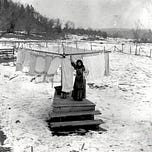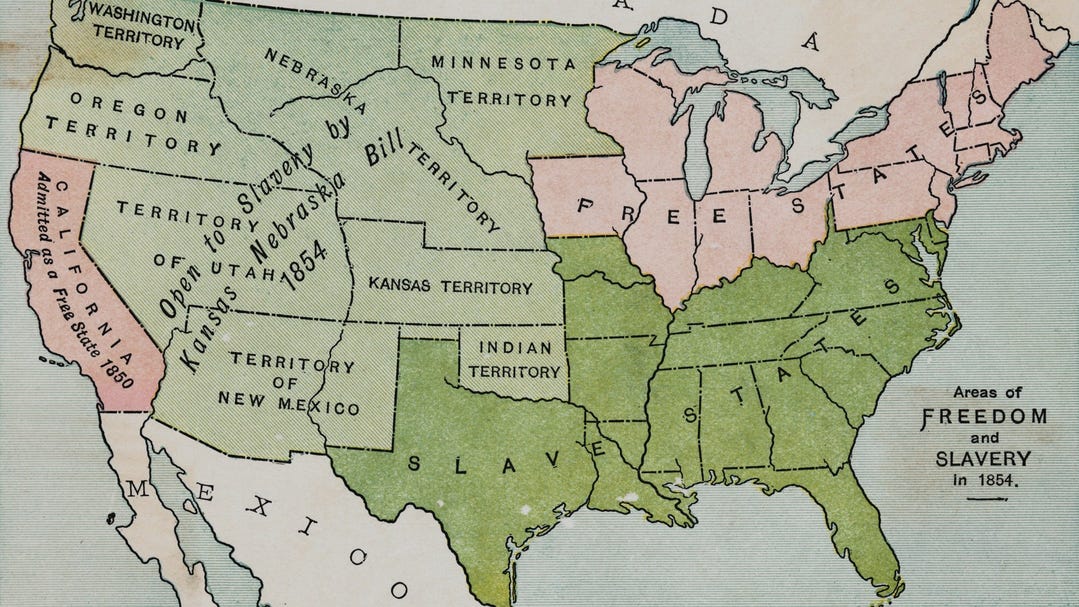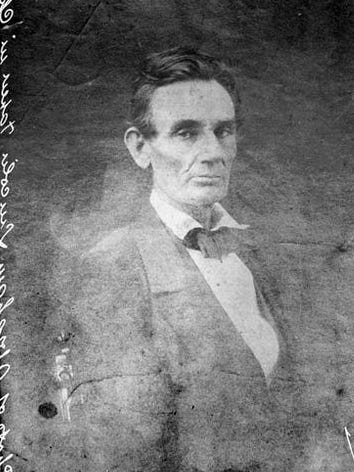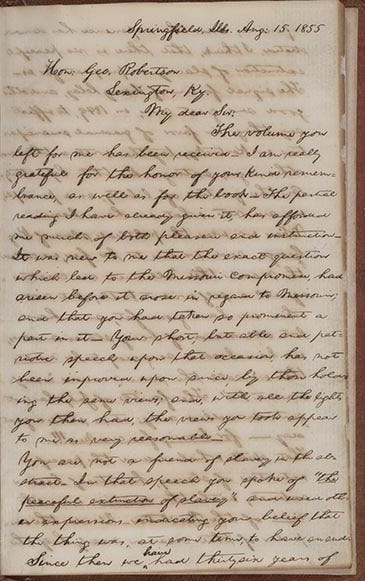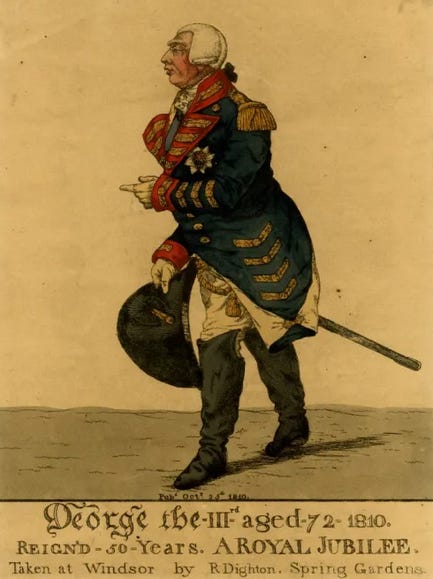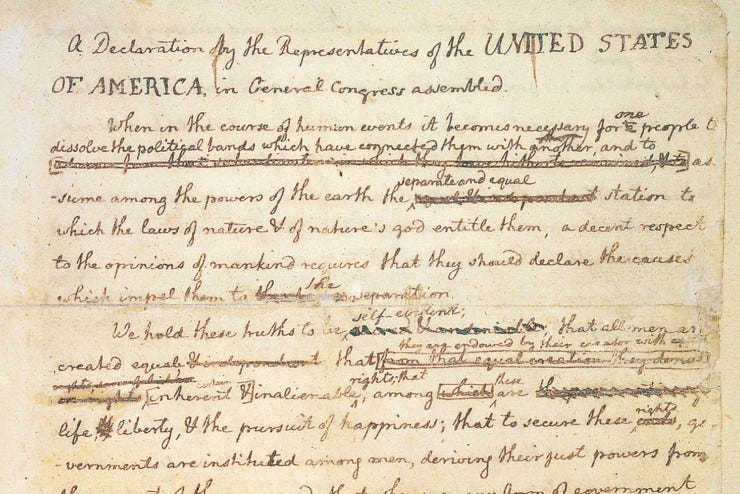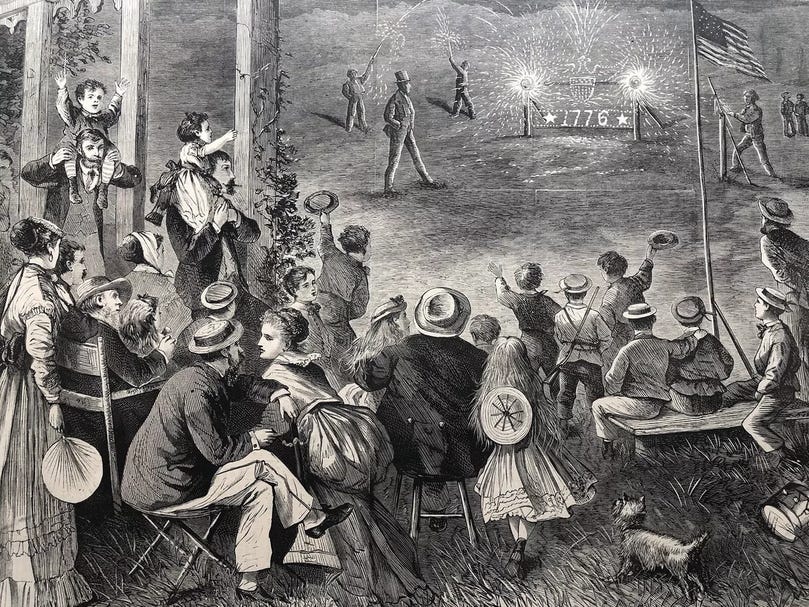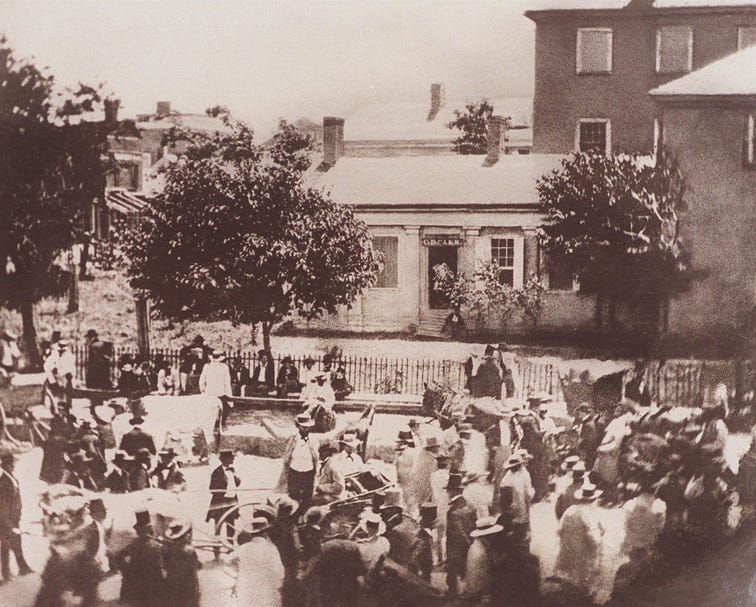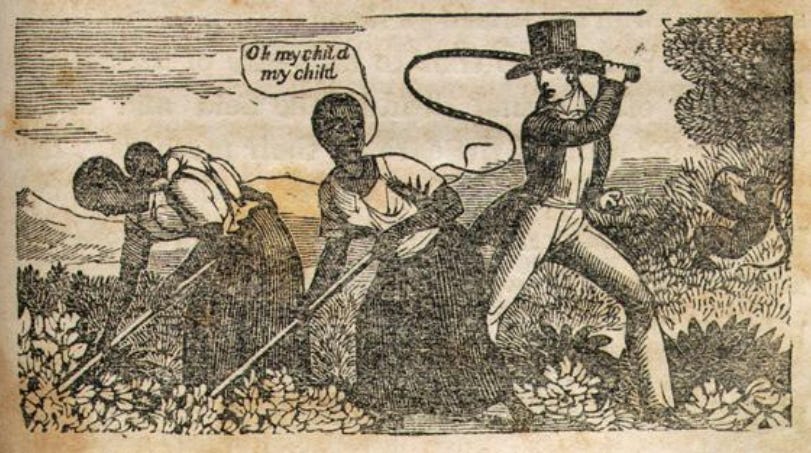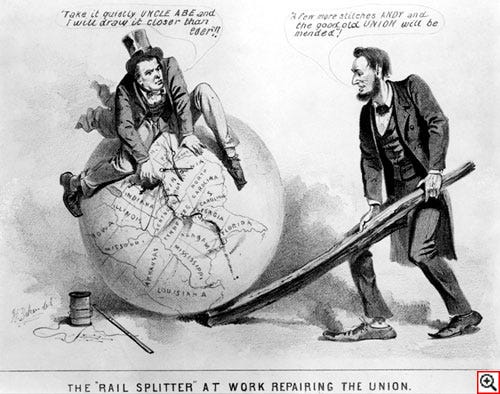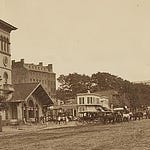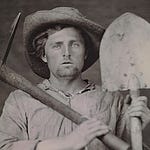What did Lincoln do today?
On this day in 1855, Lincoln wrote to a Kentucky judge who had once represented his wife’s family in a legal matter.
The judge had once served in Congress, and, while there, the judge had spoken of the need for the “peaceful extinction of slavery” in America.
Thirty-six years had passed since then.
And, in his letter, Lincoln notes that the “experience” of the intervening decades “has demonstrated, I think, that there is no peaceful extinction of slavery in prospect for us.”
The topic was deeply personal to Lincoln.
He had reentered politics the year before with the passage of the Kansas-Nebraska Act, which permitted the people of the Kansas and Nebraska Territories to determine whether to allow slavery within their territory.
The Act was an application of the concept of “popular sovereignty.”
And it repealed the Missouri Compromise of 1820 which had imposed a geographic limit on the spread of slavery.
A few months before the letter, Lincoln had been defeated in his race to represent Illinois in the US Senate.
Sounding themes he would highlight in future speeches, Lincoln told the judge that the nation had strayed from the principles of the founding fathers, who had intended that slavery end.
From Lincoln’s letter:
“On the question of liberty, as a principle, we are not what we have been.
“When we were the political slaves of King George, and wanted to be free, we called the maxim that ‘all men are created equal’ a self evident truth;
“but now when we have grown fat, and have lost all dread of being slaves ourselves, we have become so greedy to be masters that we call the same maxim ‘a self-evident lie.’
“The fourth of July has not quite dwindled away; it is still a great day---for burning fire-crackers!!!
“That spirit which desired the peaceful extinction of slavery, has itself become extinct, with the occasion, and the men of the Revolution.
“Under the impulse of that occasion, nearly half the states adopted systems of emancipation at once;
“and it is a significant fact, that not a single state has done the like since.
‘So far as peaceful, voluntary emancipation is concerned, the condition of the negro slave in America, scarcely less terrible to the contemplation of a free mind, is now as fixed,
“and hopeless of change for the better, as that of the lost souls of the finally impenitent.
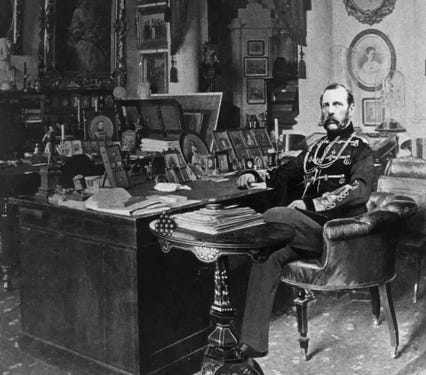
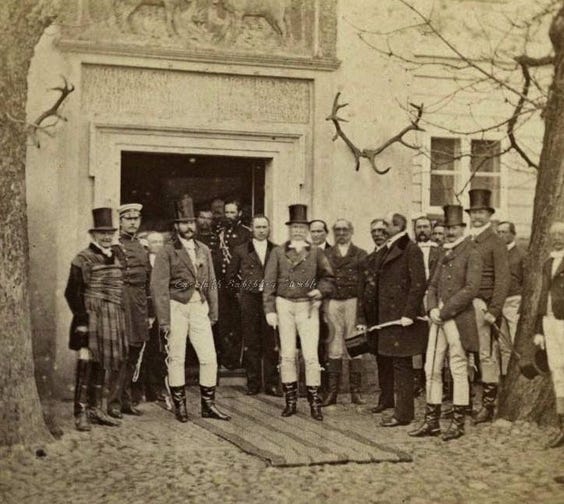
“The Autocrat of all the Russias will resign his crown, and proclaim his subjects free republicans sooner than will our American masters voluntarily give up their slaves.
“Our political problem now is ‘Can we, as a nation, continue together permanently---forever---half slave, and half free?’
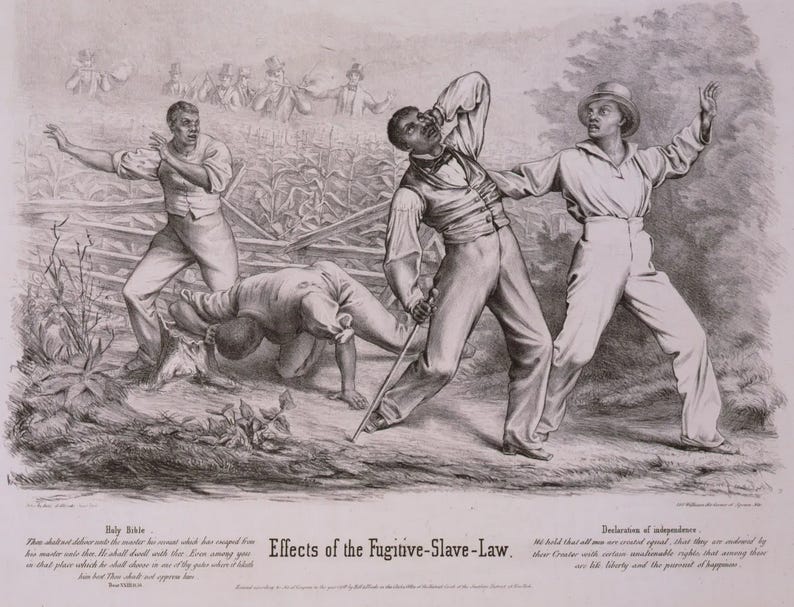
“The problem is too mighty for me.
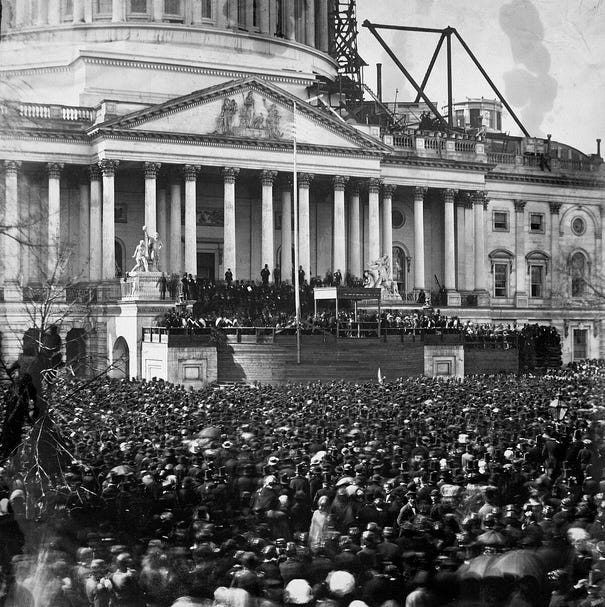
“May God, in his mercy, superintend the solution.”
Lincoln will wrestle with this “too mighty” problem in six years.
**************************
I’ll see you tomorrow.
— Brenda


